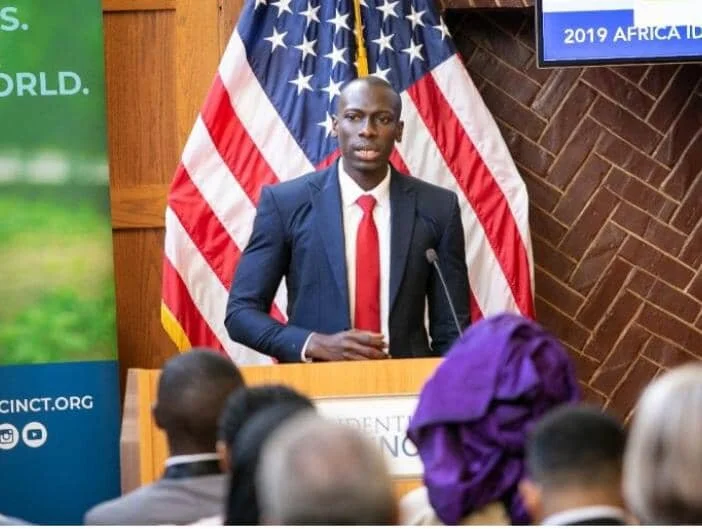Living With Integrity Starts With You
“For me, education was not a right but a privilege,” Ebrima Sonko says, reflecting on his early years in Brikama in The Gambia.
Ebrima, whose childhood home housed 50 people, struggled to afford tuition.
“I had no access to books; I would run away to others and borrow their books and read them,” Ebrima says.
“But my parents pulled strings to put me in school,” Ebrima says. “I was comfortable there.”
Ebrima, now a lead researcher with the Gambian Truth, Reconciliation, and Reparations Commission and a 2019 Mandela Washington Fellow, is working to investigate human rights violations across The Gambia, promoting civic engagement and democracy along the way.
The challenges Ebrima has come up against in his work are what he describes as entrenched cultural and social norms that stymie political engagement in the state.
“Some segment of society finds it unacceptable to hold leaders to account because of the idea that leaders are chosen by God,” Ebrima explains.
“People would rather settle for a substandard leadership model on the pretext that God will take him out when it’s due, rather than holding him responsible for his words and his actions today.”
Ebrima, in contrast, sees citizens as uniquely responsible for not only acting with integrity, but also for demanding the same level of transparency from their leaders.
“We all have a moral duty to contribute meaningfully in whatever way possible to better the lives of the people in our communities.
“We cannot hold others to account when our actions and utterance contradict everything we preach or advocate,” Ebrima says.
Taking this a step further, Ebrima encourages young leaders to see themselves as part of a larger whole and to look for opportunities in their daily lives to support one another.
“One of the most important lessons I’ve learned in life is that we rise by lifting others,” Ebrima says.
“And that’s what makes an exemplary leader: He is aware of the needs of the governed because he constantly engages with them; he understands their plight and works to address it.”
It’s a diversity of ideas, Ebrima adds, that enables meaningful, communal development.
“A perfect world, for me, is one where people from all walks of life, regardless of gender, religion, or color, are treated equally and fairly. They have the chance to live freely.”
It’s clear in chatting with Ebrima that he is particularly reflective, choosing his words with care and considering his actions in turn.
“I want to leave a legacy so that even when I’m gone, my ideas and contributions will be taken up and developed,” Ebrima says.
“People come and go, ideas stay. Ideas are what make people immortal.”
The views and opinions expressed here belong to the author or interviewee and do not necessarily reflect those of The Youth Cafe.


